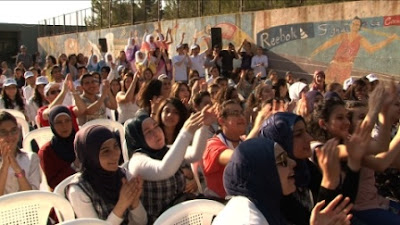In 2011,
I set off on a hunt that would take me around the world to work with
ex-soldiers and ex-combatants on theatre projects dealing with homecoming and
the return to civilian life after war. For months, I sat in rehearsals
listening to the stories of these wounded men, without a clear picture of what
it was I was looking for. Most of their tales were trauma narratives, set on an
ever-softening loop, like a stuck record fading slowly towards the eventual
peace of death. ‘The pit I dug to bury my enemy in cement.’ ‘The day I lost my
limbs and sight.’ ‘The cell where they tortured me.’ Hearing these stories
again and again, I got the sense that the men telling them were shedding a
small piece of their past with each retelling. Change was occurring, but it was
the slow and limping healing of a lifelong injury, and not the total
transformation of a poetic rebirth.
Between each project I would come back to
Britain to sit down with playwright Julia Pascal and unpack the dense months of
material collected. Julia had the difficult task of synthesizing my fractured year
into a new play; a play that I was beginning to fear would be as grinding and
nonsensical as the painful memories that were quickly becoming a discordant
stream of world-weary Arabic, Hebrew, Urdu and Kashmiri voices.
Then I went to the Rwanda Demobilization
and Reintegration Commission’s Child Rehabilitation Centre in Musanze, where a
recently demobilized child soldier told me this story:
Once upon a time there was a boy named
Chance. As a child he was made to fight, and lost his hands and his arms in the
war. When Chance returned to his family, they saw he had no arms, and that he
could not work, and so they threw him in the river, where he was swallowed by
an enormous fish. When the fish spat him up, Chance had grown both of his arms
back. He met a boss-man who taught him to fly a plane. He returned to his
family who saw he was rich and able-bodied. They begged to have him back, but
he rejected them, and set off into the world in his airplane.
Somehow, intuitively, this 16-year-old
boy – placed precariously between a tumultuous past of fighting in the
Congolese jungle, and an uncertain future in a civilian society which may or
may not accept him – had managed to hit upon my own unarticulated question and
its answer: what is the moment of total healing, of hope, in all of these
painful histories?
‘Chance’ was reminding me that hope must
be sought in the poetic realm of myth and magic, where severed arms can regrow,
and salvation can be found by riding in the intestines of a leviathan.
Julia Pascal was as moved by the boy’s
fairy tale as I had been. ‘It’s Jonah,’ she said. ‘Jonah and the whale.’ We
breathed a shared sigh of relief as we realized we had finally hit upon a
theatrical context that could actually unite our multi-lingual cacophony into a
single coherent voice and vision.
Lights up (fade). Three soldiers from
three countries are sitting in the belly of a whale…
*****
London-based
physical theatre company Theatre Témoin presented Julia Pascal’s ‘Nineveh’,
an exploration of the trauma of combat and the hope that comes afterwards.
Inspired by true stories told by ex-combatants from across the world; collected
during a year of creative work in Kashmir, Israel, Lebanon, and Rwanda,
‘Nineveh’ ran at Riverside
Studios in Hammersmith, London from 16 April to 12 May, 2013.












